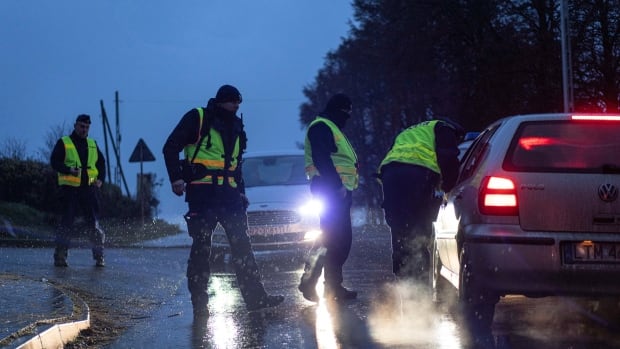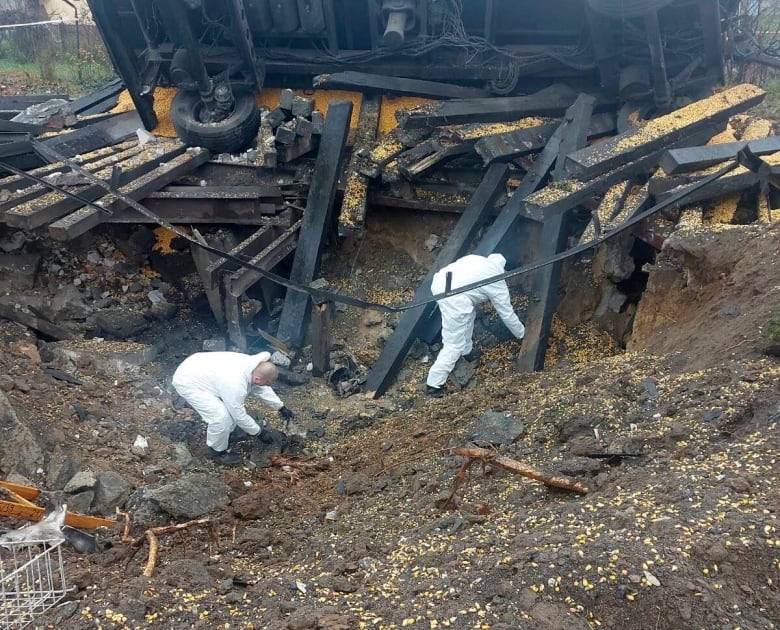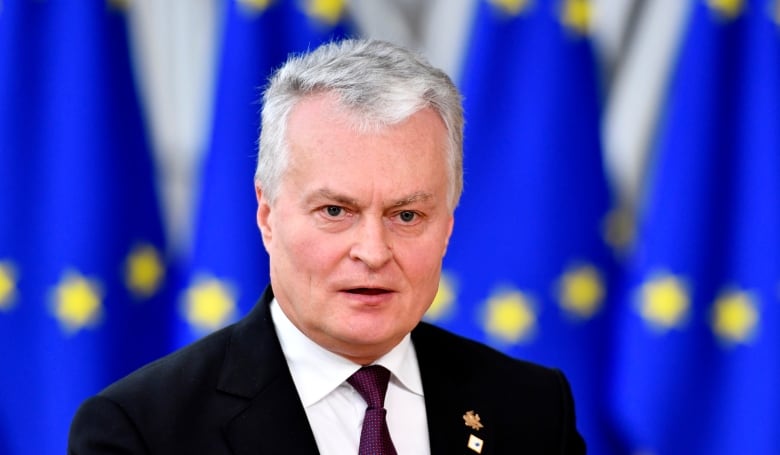
The military and geopolitical tightrope NATO has been walking since the onset of major hostilities in Ukraine was given a good shake Tuesday with an apparently inadvertent missile strike inside the Polish border.
Multiple experts say they’re surprised such an event hadn’t happened sooner, given the wild, capricious nature of Russia’s air campaign.
A missile — apparently an S-300 anti-aircraft missile — that crashed in the village of Przewodow along the border likely came from Ukraine’s air defences and was not the result of a Russian strike, Polish and NATO officials said Wednesday.
The statement eased international fears that the nearly nine-month-old war could spread across the border.
The fog of war, bad enough at the best of times, would have been made worse in the initial few hours by Moscow’s tendency to deflect, deny and deceive, said Canada’s former top diplomat at NATO.
“The first thing they would have been trying to ascertain is the facts,” said Kerry Buck, who was Canada’s permanent representative to NATO between 2015 and 2018.
“For quite a while now, Russia has understood that if it’s difficult to attribute an act to someone, to a state, it’s hard for NATO to make a decision. And in a way that’s almost been Russia’s modus operandi.”
On Wednesday, Ukrainian President Voldomyr Zelenskyy continued to insist his country was not responsible for the strike, saying he had confidence in his military’s assessment that it was not a wayward anti-aircraft missile. He offered Ukrainian expertise to aid in the ongoing international investigation, being led by Polish authorities.
At NATO headquarters in Brussels, officials would have relied on a series of surveillance reports, including airborne early warning systems that track missiles.
“NATO would have been focusing on getting the facts as soon as possible, and they would have been fairly cautious until they got those facts,” said Buck.

Another major aspect of the discussion on Wednesday would have been how to respond, given the fine line the alliance has walked since Russia’s invasion. NATO as an institution has provided non-lethal assistance, but individual members, including Canada, have stepped up with weapons systems and ammunition.
“They would have been talking about next steps,” said Buck, who noted the loose association of countries arming Ukraine, known as the International Contact Group, met in the aftermath of the tragedy that took the lives of two Polish civilians. “So, next steps would include more air defence support for Ukraine.”
A Washington-based think-tank, the Institute for the Study of War, noted in its assessment that the airstrikes launched against Ukraine on Tuesday were the largest carried out against Ukrainian critical infrastructure since the start of the war.
Ukraine’s air defences are improving
The Ukrainian Air Force estimated about 100 Kh-101 and Kh-555 cruise missiles were fired at targets in the country. The country’s general staff reported that Ukraine’s air defences shot down 73 cruise missiles and 10 drones. Those figures could not be independently verified.
“The Russian military likely used a substantial portion of its remaining high-precision weapon systems in the coordinated missile strikes on November 15,” the institute said in its nightly assessment of the war.
“Ukraine’s increased shoot-down percentage illustrates the improvement in Ukrainian air defences in the last month, and the Ukrainian General Staff attributed this improvement to the effectiveness of Western-provided air defence systems.”
Buck said Ukraine’s allies are likely debating now whether Russia can sustain the stepped-up air campaign and whether NATO needs to do more — both to support Ukraine and to secure the airspace of alliance members along the border.
“My guess is they need some more, but, you know, that’s for the generals to answer,” she said.
Pressure to reinforce NATO’s flank
Steve Saideman holds the Paterson Chair in International Affairs at the Norman Paterson School of International Affairs at Carleton University in Ottawa. He said political pressure to further reinforce NATO’s eastern flank in the medium-term is inevitable.
“Because they’ve pretty much poured cold water on the idea that it was a Russian missile hitting Poland, it means there’s not as much urgency for NATO to change what it’s doing,” he said.
“But what it does do, I think, is it’s going to call for a greater pressure on the alliance to send more troops and more anti-aircraft capabilities to pull it into [the] Baltics, Romania, other countries that are in the vicinity.”
Those calls already have begun.

Lithuanian President Gitanas Nauseda said Wednesday that NATO should swiftly deploy more air defences on the Polish-Ukrainian border and the rest of the alliance’s eastern flank.
What may be just as important, Saideman said, is the political signals NATO sends over the next few days — because the Kremlin will be watching.
Poland appears to have stepped back from invoking Article 4 of the alliance treaty, which allows a member country to convene allies for discussions because it feels threatened.
‘A test of NATO’s political will’
Such a formal declaration — separate from NATO’s Article 5 self defence clause — would send a powerful signal, said Saideman, because “it basically measures a level of seriousness.”
Two experts at the Washington-based Center for Strategic and International Studies (CSIS) agreed with Saideman’s take that what lies ahead is a further test of the alliance’s resolve.
“Moscow is very likely assessing what NATO’s response has been in the initial hours following this strike — and NATO’s moves from this point forward — as a test of NATO’s political will and allied solidarity,” Kathleen McInnis and Daniel Fata wrote in a CSIS online column published Wednesday.
“And the lesson that Brussels does not want Moscow to learn is that ‘accidental’ missile strikes can be used to sow political discord and confusion among allies.”
Even if there is a formal call for discussion among the allies, they wrote, “convening allied leaders and military officials to discuss what NATO needs to do in the event of a future crisis of this nature would send a strong signal to Putin that NATO remains united.”
NATO ambassadors did hold an emergency meeting on Wednesday and Secretary General Jens Stoltenberg said there would be no consideration of a formal gathering until the Polish investigation was completed.